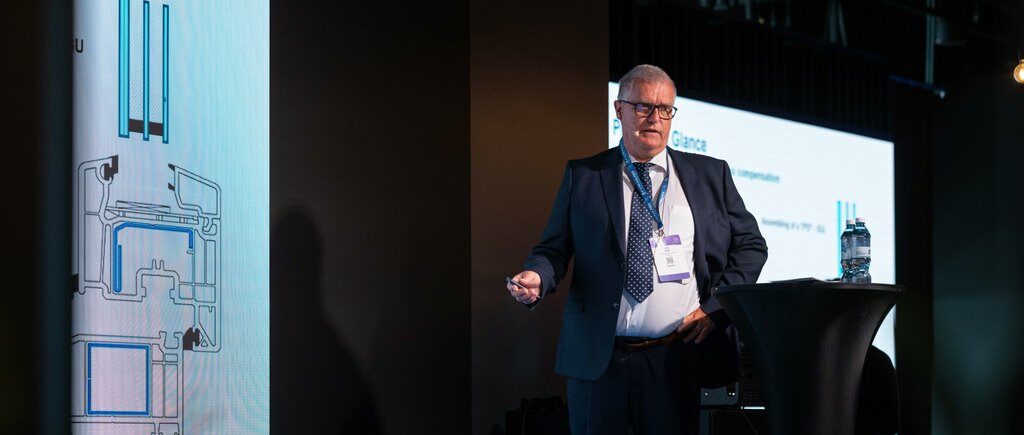
The production of insulating glass (IG) is undergoing a radical transformation. As long as glass plates keep getting larger and the demand for triple IG continues to increase, the need for automatic spacer application is very high. Fortunately, the solution already exists – and has been out for quite some time.
The main trends in the IG production market are clear and not surprising. The market wants increased sustainability, automation, quality and flexibility. Specifically, there is a pressing need to enhance the energy efficiency of production, minimize waste and boost productivity. Additionally, it is vital to ensure high-quality and long-lasting insulation with optimal end product energy efficiency while achieving maximum flexibility in producing diverse products and geometries.
Conventional IG production systems – rigid or flexible – simply can’t ensure all of this. However, the Thermo Plastic Spacer (TPS®) technology offers a comprehensive solution.
TPS® is the solution that meets all the burning requirements of the modern world, although it was developed around 30 years ago.
In contrast to other methods, with TPS®, spacer material is extruded from the drum directly onto the glass plate with a fully automatic applicator to form a dense, homogeneous and continuously applied mass. Just the right amount of material is used in production.
This immediately minimizes the complexity of processing equipment, as you need only one single line to produce any IG unit. The need for separate production steps, such as sawing, bending, connecting, desiccant filling and butyl-coating, is eliminated completely. Plus, the production of a frame, its logistics and storage are no longer necessary.
And thanks to a simplified, interruption-free operation and the high level of automation, considerably less manpower is needed to run the process. As a result, the costs of IG production can be reduced drastically.
What is more, the TPS® application is very sustainable. The spacer leaves no waste.
For end users, the advantages of TPS® IG units are no less valuable. They get:
The successful application of TPS® has specific process requirements, however. These are:
TPS® revolutionizes the production of insulating glass. Its ability to meet modern market demands while improving efficiency and sustainability makes it an advanced and high-performance glass solution.
To learn more about the technology behind TPS®, the following presentation provides an excellent overview of this unique IG production approach.
Sign up for Glastory newsletter
We answer your questions about glass processing. Let us know your challenges and we promise to do our best to help you.
Comments are closed.